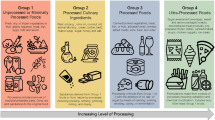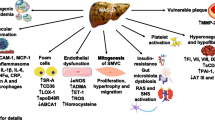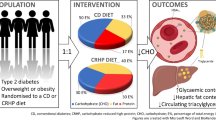Abstract
Recently published studies have provided additional evidence of the pathophysiology and clinical relevance of postprandial dyslipidemia. Notably, the relationship with cardiovascular risk has been considerably strengthened by two large prospective studies showing an independent role for nonfasting plasma triglycerides. Knowledge of the genetic influence has been expanded by the identification of new gene variants associated with postprandial lipemia. More data have confirmed the strict relation between postprandial lipoprotein alterations and insulin resistance, whereas studies on the association with endothelial dysfunction have not been conclusive. Recent medium-term intervention studies have mainly evaluated the different dietary fatty acids and compared diets rich in monounsaturated fatty acids with diets rich in carbohydrates. Results indicate that the diet generally recommended for cardiovascular prevention (ie, low in saturated fat, rich in omega-3 fatty acids, moderately rich in carbohydrates, and rich in fiber) may also correct postprandial lipid abnormalities.
Similar content being viewed by others
References and Recommended Reading
Iovine C, Vaccaro O, Gentile A, et al.: Post-prandial triglyceride profile in a population-based sample of type 2 diabetic patients. Diabetologia 2004, 47:19–22.
Lopez-Miranda J, Williams C, Lairon D: Dietary, physiological, genetic and pathological influences on postprandial lipid metabolism. Br J Nutr 2007, 98:458–473.
Rotteveel J, van Weissenbruch MM, Twisk JW, Delemarre-Van de Waal HA: Abnormal lipid profile and hyperinsulinaemia after a mixed meal: additional cardiovascular risk factors in young adults born preterm. Diabetologia 2008, 51:1269–1275.
López-Miranda J, Pérez-Martínez P, Marín C, et al.: Postprandial lipoprotein metabolism, genes and risk of cardiovascular disease. Curr Opin Lipidol 2006, 17:132–138.
Delgado-Lista J, Perez-Jimenez F, Tanaka T, et al.: An apolipoprotein A-II polymorphism (-265T/C, rs5082) regulates postprandial response to a saturated fat overload in healthy men. J Nutr 2007, 137:2024–2028.
Kolovou G, Anagnostopoulou K, Kostakou P, et al.: Association between the TaqIB polymorphism in the cholesteryl ester transfer protein gene locus and postprandial plasma lipoprotein levels in heterozygotes for familial hypercholesterolemia. Clin Chem Lab Med 2007, 45:1190–1198.
Tanaka T, Ordovas JM, Delgado-Lista J, et al.: Peroxisome proliferator-activated receptor alpha polymorphisms and postprandial lipemia in healthy men. J Lipid Res 2007, 48:1402–1408.
Moreno-Luna R, Perez-Jimenez F, Marin C, et al.: Two independent apolipoprotein A5 haplotypes modulate postprandial lipoprotein metabolism in a healthy Caucasian population. J Clin Endocrinol Metab 2007, 92:2280–2285.
Lai CQ, Arnett DK, Corella D, et al.: Fenofibrate effect on triglyceride and postprandial response of apolipoprotein A5 variants: the GOLDN study. Arterioscler Thromb Vasc Biol 2007, 27:1417–1425.
Tanaka T, Delgado-Lista J, Lopez-Miranda J, et al.: Scavenger receptor class B type I (SCARB1) c.1119C>T polymorphism affects postprandial triglyceride metabolism in men. J Nutr 2007, 137:578–582.
Jiménez-Gómez Y, Pérez-Jiménez F, Marín C, et al.: The -250G/A polymorphism in the hepatic lipase gene promoter influences the postprandial lipemic response in healthy men. Nutr Metab Cardiovasc Dis 2008, 18:173–181.
Shen J, Arnett DK, Pérez-Martínez P, et al.: The effect of IL6-174C/G polymorphism on postprandial triglyceride metabolism in the GOLDN studyboxs. J Lipid Res 2008, 49:1839–1845.
Annuzzi G: Genetic and environmental modulation of postprandial lipemia: from a better knowledge of the mechanisms to a more effective treatment strategy. Nutr Metab Cardiovasc Dis 2008, 18:169–172.
Annuzzi G, De Natale C, Iovine C, et al.: Insulin resistance is independently associated with postprandial alterations of triglyceride-rich lipoproteins in type 2 diabetes mellitus. Arterioscler Thromb Vasc Biol 2004, 24:2397–2402.
Annuzzi G, Giacco R, Patti L, et al.: Postprandial chylomicrons and adipose tissue lipoprotein lipase are altered in type 2 diabetes independently of obesity and whole-body insulin resistance. Nutr Metab Cardiovasc Dis 2008, 18:531–538.
Adeli K, Lewis GF: Intestinal lipoprotein overproduction in insulin-resistant states. Curr Opin Lipidol 2008, 19:221–228.
Zilversmit DB: Atherogenesis: a postprandial phenomenon. Circulation 1979, 60:473–485.
Lekhal S, Børvik T, Nordøy A, et al.: Increased postprandial triglyceride-rich lipoprotein levels in elderly survivors of myocardial infarction. Lipids 2008, 43:507–515.
Alssema M, Schindhelm RK, Dekker JM, et al.: Postprandial glucose and not triglyceride concentrations are associated with carotid intima media thickness in women with normal glucose metabolism: the Hoorn prandial study. Atherosclerosis 2008, 196:712–719.
Karpe F, Boquist S, Tang R, et al.: Remnant lipoproteins are related to intima-media thickness of the carotid artery independently of LDL cholesterol and plasma triglycerides. J Lipid Res 2001, 42:17–21.
Nakajima K, Nakajima Y, Takeichi S, et al.: ApoB-100 carrying lipoprotein, but not apoB-48, is the major subset of proatherogenic remnant-like lipoprotein particles detected in plasma of sudden cardiac death cases. Atherosclerosis 2007, 194:473–482.
Nakajima K, Nakajima Y, Takeichi S, Fujita MQ: Plasma remnant-like lipoprotein particles or LDL-C as major pathologic factors in sudden cardiac death cases. Atherosclerosis 2008, 198:237–246.
Nakano T, Nakajima K, Niimi M, et al.: Detection of apolipoproteins B-48 and B-100 carrying particles in lipoprotein fractions extracted from human aortic atherosclerotic plaques in sudden cardiac death cases. Clin Chim Acta 2008, 390:38–43.
Nordestgaard BG, Benn M, Schnohr P, et al.: Nonfasting triglycerides and risk of myocardial infarction, ischemic heart disease, and death in men and women. JAMA 2007, 298:299–308.
Bansal S, Buring JE, Rifai N, et al.: Fasting compared with nonfasting triglycerides and risk of cardiovascular events in women. JAMA 2007, 298:309–316.
Bermúdez B, López S, Pacheco YM, et al.: Influence of postprandial triglyceride-rich lipoproteins on lipid-mediated gene expression in smooth muscle cells of the human coronary artery. Cardiovasc Res 2008, 79:294–303.
Ting HJ, Stice JP, Schaff UY, et al.: Triglyceride-rich lipoproteins prime aortic endothelium for an enhanced inflammatory response to tumor necrosis factor-alpha. Circ Res 2007, 100:381–390.
Jackson KG, Armah CK, Minihane AM: Meal fatty acids and postprandial vascular reactivity. Biochem Soc Trans 2007, 35:451–453.
Hilpert KF, West SG, Kris-Etherton PM, et al.: Postprandial effect of n-3 polyunsaturated fatty acids on apolipoprotein B-containing lipoproteins and vascular reactivity in type 2 diabetes. Am J Clin Nutr 2007, 85:369–376.
Shimabukuro M, Chinen I, Higa N, et al.: Effects of dietary composition on postprandial endothelial function and adiponectin concentrations in healthy humans: a crossover controlled study. Am J Clin Nutr 2007, 86:923–928.
Rudolph TK, Ruempler K, Schwedhelm E, et al.: Acute effects of various fast-food meals on vascular function and cardiovascular disease risk markers: the Hamburg Burger Trial. Am J Clin Nutr 2007, 86:334–340.
Armah CK, Jackson KG, Doman I, et al.: Fish oil fatty acids improve postprandial vascular reactivity in healthy men. Clin Sci (Lond) 2008, 114:679–686.
Hall WL, Sanders KA, Sanders TA, Chowienczyk PJ: A high-fat meal enriched with eicosapentaenoic acid reduces postprandial arterial stiffness measured by digital volume pulse analysis in healthy men. J Nutr 2008, 138:287–291.
O’Keefe JH, Bell DS: Postprandial hyperglycemia/hyperlipidemia (postprandial dysmetabolism) is a cardiovascular risk factor. Am J Cardiol 2007, 100:899–904.
Khossousi A, Binns CW, Dhaliwal SS, Pal S: The acute effects of psyllium on postprandial lipaemia and thermogenesis in overweight and obese men. Br J Nutr 2008, 99:1068–1075.
Ota N, Soga S, Hase T, et al.: Dietary diacylglycerol induces the regression of atherosclerosis in rabbits. J Nutr 2007, 137:1194–1199.
Berry SE, Miller GJ, Sanders TA: The solid fat content of stearic acid-rich fats determines their postprandial effects. Am J Clin Nutr 2007, 85:1486–1494.
Damsgaard CT, Frøkiaer H, Andersen AD, Lauritzen L: Fish oil in combination with high or low intakes of linoleic acid lowers plasma triacylglycerols but does not affect other cardiovascular risk markers in healthy men. J Nutr 2008, 138:1061–1066.
Kelley DS, Siegel D, Vemuri M, Mackey BE: Docosahexaenoic acid supplementation improves fasting and postprandial lipid profiles in hypertriglyceridemic men. Am J Clin Nutr 2007, 86:324–333.
Plat J, Jellema A, Ramakers J, Mensink RP: Weight loss, but not fish oil consumption, improves fasting and postprandial serum lipids, markers of endothelial function, and inflammatory signatures in moderately obese men. J Nutr 2007, 137:2635–2640.
Rivellese AA, Giacco R, Annuzzi G, et al.: Effects of monounsaturated vs. saturated fat on postprandial lipemia and adipose tissue lipases in type 2 diabetes. Clin Nutr 2008, 27:133–141.
Lairon D, Lopez-Miranda J, Williams C: Methodology for studying postprandial lipid metabolism. Eur J Clin Nutr 2007, 61:1145–1161.
Paniagua JA, de la Sacristana AG, Sánchez E, et al.: A MUFA-rich diet improves posprandial glucose, lipid and GLP-1 responses in insulin-resistant subjects. J Am Coll Nutr 2007, 26:434–444.
Berglund L, Lefevre M, Ginsberg HN, et al.: Comparison of monounsaturated fat with carbohydrates as a replacement for saturated fat in subjects with a high metabolic risk profile: studies in the fasting and postprandial states. Am J Clin Nutr 2007, 86:1611–1620.
Annuzzi G, De Natale C, Patti L, et al.: High-CHO/high-fibre diet vs. low-CHO/high-MUFA diet: which is the better approach to postprandial lipid abnormalities in type 2 diabetic patients? Diabetologia 2007, 50:S328.
Roberts R, Bickerton AS, Fielding BA, et al.: Reduced oxidation of dietary fat after a short term high-carbohydrate diet. Am J Clin Nutr 2008, 87:824–831.
Lairon D, Play B, Jourdheuil-Rahmani D: Digestible and indigestible carbohydrates: interactions with postprandial lipid metabolism. J Nutr Biochem 2007, 18:217–227.
Author information
Authors and Affiliations
Corresponding author
Rights and permissions
About this article
Cite this article
Rivellese, A.A., Bozzetto, L. & Annuzzi, G. Postprandial lipemia, diet, and cardiovascular risk. Curr Cardio Risk Rep 3, 5–11 (2009). https://doi.org/10.1007/s12170-009-0002-2
Published:
Issue Date:
DOI: https://doi.org/10.1007/s12170-009-0002-2




